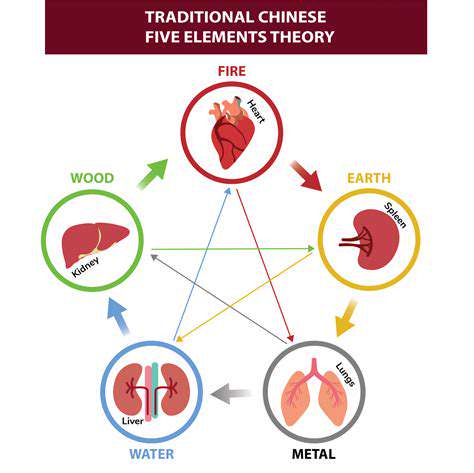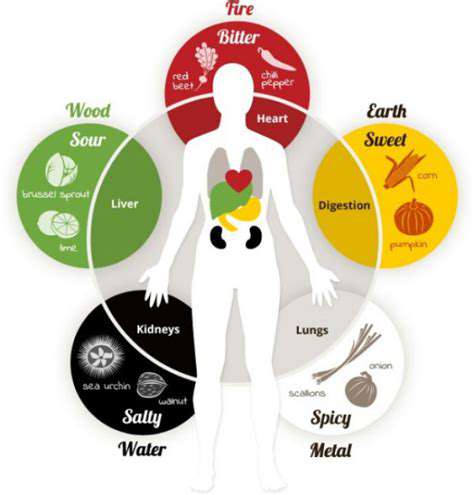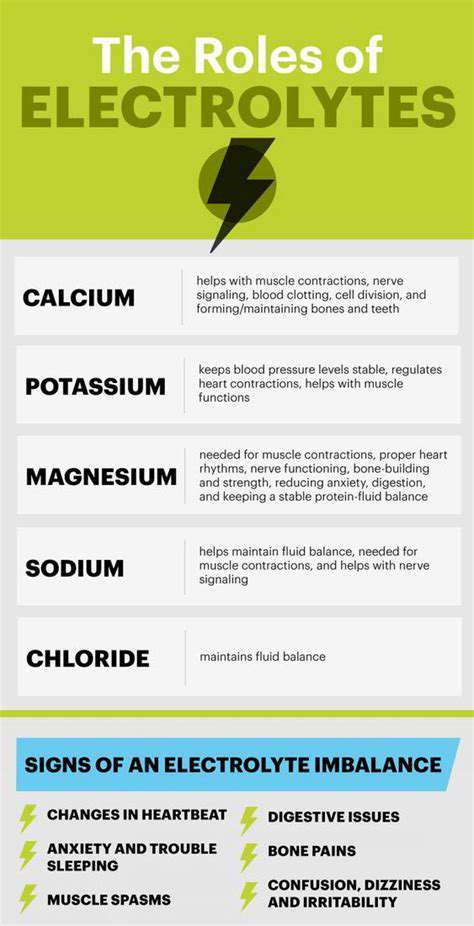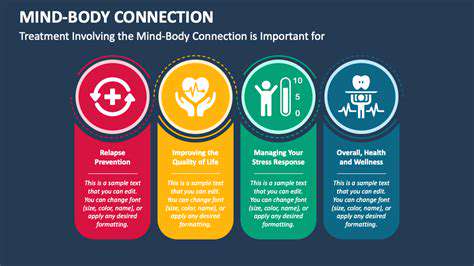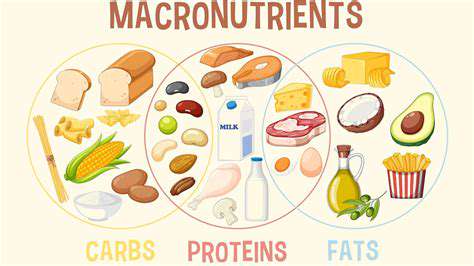Raw Food Diet Benefits and Common Misconceptions
Introduction to the Raw Food Lifestyle

What is the Raw Food Lifestyle?
The raw food lifestyle is a dietary approach that emphasizes consuming uncooked, unprocessed foods. This includes fruits, vegetables, nuts, seeds, legumes, and sprouted grains. Advocates of this lifestyle believe that cooking destroys essential nutrients and enzymes, thus impacting overall health and well-being. It's important to note that there are various interpretations and approaches within the raw food community, with some focusing on specific types of raw foods and others incorporating a wider variety of uncooked options.
Benefits of the Raw Food Diet
Proponents of the raw food diet often cite potential health benefits, such as improved digestion and increased energy levels. Some studies suggest that raw foods may contain higher levels of certain vitamins and minerals compared to cooked foods. Furthermore, proponents often associate raw food diets with weight management, as many raw foods are lower in calories and higher in fiber. However, it's important to consider the potential downsides and ensure proper nutrient intake.
Potential Drawbacks and Considerations
The raw food diet can be challenging to maintain and may require careful planning to ensure adequate nutrient intake. Some nutrients, such as vitamin B12, can be difficult or impossible to obtain in sufficient quantities from raw food sources alone. Furthermore, a strict raw food diet might limit the variety of foods and flavors available, potentially leading to dietary boredom or nutritional deficiencies.
Nutritional Needs and Deficiencies
Maintaining a balanced diet on a raw food lifestyle is crucial. Raw foods often lack certain nutrients found in cooked foods, which can potentially create nutritional deficiencies. Careful planning and supplementation may be necessary for individuals following a raw food diet to ensure they meet all their nutritional needs. Also, sourcing fresh, high-quality raw ingredients is essential for optimal health and well-being.
The Role of Enzymes in Raw Foodism
A core belief of the raw food movement centers around the concept of enzymes. The idea is that cooking destroys enzymes vital for digestion and overall bodily function. However, the scientific consensus on the lasting impact of cooking on enzyme activity is mixed. Further research is needed to fully understand the role of enzymes in raw foods and their potential impact on health. It is important to approach this claim with a critical and informed mindset.
Potential Risks and Precautions
Implementing a raw food diet requires significant changes in eating habits and can be challenging to sustain. Individuals considering this lifestyle should consult with a healthcare professional or registered dietitian to ensure they understand the potential risks and to discuss their individual nutritional needs. This is especially important for pregnant women, children, and individuals with specific health conditions.
Long-Term Sustainability and Practicality
The long-term sustainability of a raw food diet can be problematic for many individuals due to the limited variety of foods and the potential for nutritional deficiencies. Maintaining this diet often requires significant time, effort, and financial investment to ensure proper nutrient intake. Alternatives like a balanced diet with an emphasis on whole, unprocessed foods might be more practical and sustainable for long-term health.
Nutritional Considerations and Potential Deficiencies
Macronutrient Balance
Maintaining a balanced intake of protein, carbohydrates, and fats is crucial on a raw food diet. Raw fruits and vegetables provide vital vitamins and minerals, but they often lack complete protein sources like animal products. Carefully planning meals to include a variety of raw protein sources, such as nuts, seeds, and legumes, is essential to ensure adequate protein intake. This careful planning is critical to avoid potential deficiencies and to ensure the body receives the necessary building blocks for tissue repair and growth. It's important to consider the overall macro-nutrient profile and how it interacts with the body's needs.
Raw foods often lack saturated fats, which are essential for hormone production and overall health. Including healthy fats from avocados, nuts, and seeds is important to support this aspect of the diet. Balancing the macronutrients is a critical part of any dietary strategy, especially for a raw food diet, where certain nutrients may be harder to obtain in sufficient quantities.
Vitamin and Mineral Deficiencies
While raw foods offer numerous vitamins and minerals, some nutrients may be less bioavailable in their raw form, potentially leading to deficiencies. Vitamin B12, for example, is primarily found in animal products, and vegans and raw fooders need to be particularly careful to supplement appropriately. This is especially true when following a strict raw food diet. Careful consideration of potential deficiencies should be made to determine if supplementation is necessary.
Iron absorption can also be affected by the presence of phytates in some raw plant foods. Pairing iron-rich foods with vitamin C-rich fruits or vegetables can enhance absorption, mitigating the risk of iron deficiency. Understanding how different nutrients interact is vital for a healthy raw food diet.
Calcium and Vitamin D
Calcium is essential for bone health, and while some raw foods contain calcium, it may not be as readily absorbed as in other forms. Combining calcium-rich foods with vitamin D, which aids in calcium absorption, is important. Plant-based sources of calcium, such as leafy greens, need to be considered for a balanced intake. This is particularly important for individuals who are following a raw food diet as calcium levels need to be monitored.
Protein Intake Strategies
Protein is crucial for building and repairing tissues, and raw food diets can present challenges in obtaining adequate amounts. Incorporating a variety of raw protein sources, such as nuts, seeds, legumes, and sprouts, is essential. Knowing how to combine these sources effectively can help ensure optimal protein intake.
Fiber Considerations
Raw foods are often high in fiber, which is beneficial for digestive health. However, too much fiber can sometimes lead to digestive issues if not managed properly. A gradual introduction of high-fiber foods into the diet is often recommended to allow the digestive system to adapt. Understanding the dietary fiber content of raw foods and incorporating them into the diet appropriately is important.
Hydration and Electrolyte Balance
Staying hydrated is critical for overall health, especially when consuming raw foods, which can sometimes be lower in sodium compared to processed foods. Raw foods often contain electrolytes like potassium and magnesium, but maintaining an appropriate balance is essential. Monitoring hydration levels and potentially supplementing electrolytes, particularly in cases of intense physical activity, can be important aspects of a raw food diet.
Common Misconceptions About the Raw Food Diet
Common Misconceptions About Macronutrient Balance
A prevalent misconception surrounding the raw food diet is the idea that it automatically provides a balanced intake of all essential macronutrients, like proteins, carbohydrates, and fats. While some raw foods are excellent sources of specific nutrients, a truly balanced raw food diet requires careful planning and consideration. Simply consuming a variety of raw fruits and vegetables may not be enough to meet the body's daily protein and healthy fat needs, potentially leading to nutritional deficiencies if not meticulously managed. This is especially true for individuals with specific dietary requirements or those who lead active lifestyles.
Furthermore, the bioavailability of nutrients in raw foods can vary. Certain nutrients, such as vitamin C and some minerals, might be less readily absorbed by the body in their raw state compared to cooked forms. This underscores the importance of understanding the specific nutritional needs of the individual and ensuring adequate intake through diverse raw food choices and, potentially, supplementation in consultation with a healthcare professional.
The Myth of Easy Weight Loss
Many believe that the raw food diet is a simple solution for rapid weight loss. This often stems from the lower caloric density of raw foods compared to cooked ones. However, the raw food diet's effectiveness for weight loss is not guaranteed, and it can be challenging to maintain a consistent caloric deficit required for sustained weight loss, even with a well-planned raw food approach. The diet's restrictive nature can also lead to feelings of deprivation, potentially hindering long-term adherence and ultimately impacting weight loss goals.
Moreover, the raw food diet's emphasis on whole, unprocessed foods may seem appealing, but it doesn't automatically translate into effortless weight loss. The diet's restrictive nature, combined with the need for meticulous planning and careful portion control, can be surprisingly demanding. This often leads to individuals struggling to maintain the diet's strict guidelines over time, ultimately hindering their weight loss objectives.
The Potential for Nutrient Deficiencies
Another common misconception is that the raw food diet is inherently a healthy and complete approach to nutrition. While raw foods offer many benefits, the raw food diet, if not carefully planned, can lead to significant nutrient deficiencies. Certain vitamins and minerals are better absorbed by the body when consumed in cooked forms, and a raw food diet that lacks variety in its composition can easily fall short of providing the body's full nutritional requirements. This can have detrimental effects on overall health and well-being.
The Importance of Diversity in Raw Food Choices
The raw food diet often emphasizes a wide variety of raw fruits and vegetables, which is a positive aspect. However, it's crucial to understand that variety is not just about consuming different types of produce. A truly diverse raw food diet needs to include a wide range of raw plant-based foods, including nuts, seeds, legumes, and sprouts, to ensure the body receives a comprehensive spectrum of nutrients. This variety is vital to meeting the body's diverse nutritional demands, and neglecting specific food groups can lead to imbalances and potential deficiencies.
Misinterpretations of Detoxification Claims
Some proponents claim the raw food diet offers significant detoxification benefits. While raw foods can contribute to a healthy gut microbiome, there's no scientific evidence that it acts as a universal detoxification agent. The idea that the diet eliminates toxins from the body through raw foods alone is often overstated and not supported by scientific research. The body has its own natural detoxification mechanisms, and a balanced diet, including raw foods, supports their efficiency, but doesn't rely on the diet alone for detoxification.
Sustainability and Practicality of the Raw Food Diet
Exploring the Raw Food Diet's Sustainability
The raw food diet, focusing on uncooked plant-based foods, often presents a challenge regarding sustainability, particularly in terms of nutritional completeness and accessibility. While proponents argue that consuming raw foods maximizes nutrient retention, sourcing and preparing a sufficient variety of raw fruits, vegetables, and sprouts to meet all essential dietary needs can be difficult and expensive, especially for individuals in regions with limited access to fresh produce. The practicality of maintaining this diet long-term, considering the demands on time, resources, and potentially the need for significant dietary adjustments, warrants further investigation.
Furthermore, the raw food diet's reliance on fresh, often locally sourced produce necessitates careful consideration of its environmental impact. Transporting produce across long distances can contribute significantly to carbon emissions. The potential for food waste, due to the perishable nature of many raw ingredients, needs to be addressed. A balanced approach that acknowledges these factors is crucial for evaluating the true sustainability of this dietary choice.
Nutritional Completeness and Potential Deficiencies
A key concern surrounding the raw food diet is its potential for nutritional deficiencies. While raw foods contain essential vitamins and minerals, some nutrients are better absorbed when cooked. The bioavailability of certain nutrients like iron and vitamin B12 might be compromised in a raw food diet, potentially leading to nutritional imbalances over time. Careful meal planning and supplementation may be necessary to avoid these gaps and ensure optimal health.
Practicality and Time Commitment
The raw food diet's practicality is heavily influenced by its time demands. Preparing and consuming raw foods often requires significant time investment for thorough preparation, including meticulous washing, chopping, and potentially sprouting or fermenting ingredients. The time commitment involved might make it challenging to integrate this diet into a busy lifestyle.
Furthermore, the need to source fresh, high-quality ingredients regularly can pose a practical challenge. This may require frequent trips to farmers' markets, specialty stores, or other specialized food providers, which can be time-consuming and costly, significantly impacting the practicality of the raw food diet for many.
Accessibility and Affordability
The raw food diet's accessibility and affordability are often intertwined. Depending on geographic location and socioeconomic status, accessing a diverse range of fresh, raw ingredients can be a considerable barrier. The cost of specialized raw food products and the need for readily available fresh produce can significantly increase the financial burden of adhering to this dietary approach.
Social and Cultural Considerations
Adopting a raw food diet can present unique social and cultural challenges. It might require adjustments in mealtimes, social gatherings, and potentially navigating differing opinions and dietary preferences within social circles. The need for specialized recipes and accommodations for social events can present challenges that need to be considered.
Environmental Impact of Raw Food Production
The environmental impact of raw food production is a complex issue. The sourcing of fresh produce and the potential for food waste are major considerations. While the raw food diet may promote local and sustainable agriculture, the transportation of produce across long distances can still have a significant carbon footprint. The need to consider the environmental impact of raw food production is essential for a truly holistic evaluation of the diet's overall sustainability.

